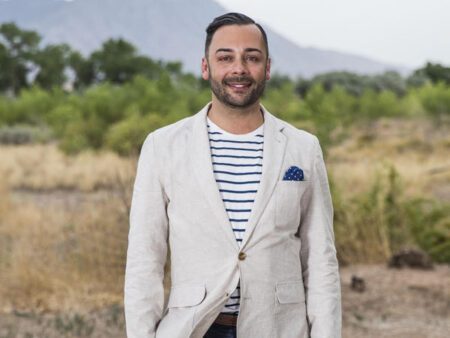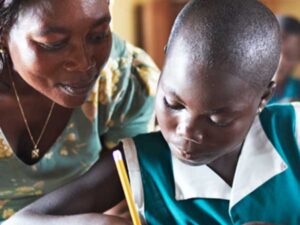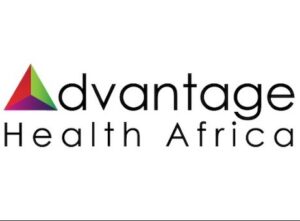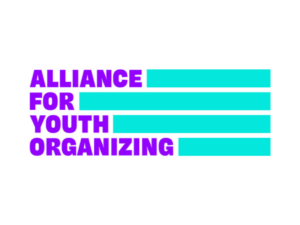Decolonizing Wealth Project is focused on illuminating and providing healing from the harms caused by colonialism and white supremacy and facilitating equitable wealth distribution.
Vanessa Thomas of Decolonizing Wealth Project spoke with Catherine Edwards on February 23, 2023. Click here to read the full conversation with insights highlighted.
Catherine Edwards: Could we start by you introducing yourself and talking about what problem your work addresses?
Vanessa Thomas: I am Vanessa Thomas, the Director of Global Programs at the Decolonizing Wealth Project.
The Decolonizing Wealth Project is a philanthropic foundation, we’re trying to normalize racial harmony and allow people to live their best lives, healed from generations of colonial trauma. We do this through three main rungs. We have philanthropic giving and practice, we give funding and resources to Black and Indigenous led communities as well as donor education, trying to disrupt the flow of capital, and then racial healing.
We have resources and create content that really allow communities, White and Black and Indigenous and more broadly communities of color, to talk about the harms that have been caused due to colonialism and white supremacy, and also how you can heal from this.
And finally, narrative change. We have activations, media hits, publications which are all focused on sharing stories and issues on predominantly Black and Indigenous communities, but also communities of color, recognizing that often when we are given platforms it’s to shed light on something negative. So we’re trying to shine a light on the work and the movement that Black and Indigenous communities are driving.
Overall, the problem that we’re trying to solve is disrupting the flow of wealth and capital to make sure that philanthropy, but more broadly other wealth, is distributed equitably to Black and Indigenous communities.
Catherine Edwards: Who are the people that you’re serving directly? Who are you working with directly?
Vanessa Thomas: All of our funding goes to Black and Indigenous led organizations, so I’d say the communities that we’re serving are Black and Indigenous, and we are a Black and Indigenous led organization.
Catherine Edwards: And how do you find them and decide who gets involved?
Vanessa Thomas: We’re predominantly a philanthropic foundation, so we are moving money to Black and Indigenous communities, but also doing an influencing piece. For the funding, we have open calls of grant making, so Black and Indigenous organizations can submit an application. And then we have an advisory panel of Black and Indigenous activists, movement leaders, experts in philanthropy and beyond, who review all of the applications.
Pivoting it slightly to our global work, I’m the Director of Global Programs, I started in June 2021, and my role is thinking about the work that we’ve done in the United States. We’ve been able to influence just over $500 million of funding directly from foundations to Black and Indigenous communities in the States. Thinking about that work, how can we deepen that globally, specifically looking at UK philanthropy and the international aid sector.
At the moment we’ve got the grant making that we do, but we’re also working on a decolonizing global philanthropy report, which will interview activists and movement leaders in the Global South. We’re specifically thinking, across Africa and Asia, about the challenges that they face with philanthropy. But not just honing in on that, we’d also like to really look at the solutions because there are examples of things like the Decolonizing Wealth Project, those who are moving money in a more equitable way and who are moving money directly to Globally South led organizations.
This is an issue because despite trillions of dollars of aid moving to the Global South, less than 10% of this goes directly to an African led organization, it always goes to an intermediary which is usually White led, usually based in Europe, usually based in the Global North, who are very much dictating how the money should be used, and dictating where the money should go.
We know that the solutions come from the communities themself, so we’d really like this report to focus on how money can be moved directly to African led and Globally South led organizations, recognizing that for philanthropy to really have its transformative effect and impact, this is how the money needs to be redirected.
Catherine Edwards: What are you doing differently? How do you work to make sure it has this different result?
Vanessa Thomas: Unlike many foundations, we only fund Black led and Indigenous led organizations, and we have a racial justice lens throughout our work, and this is something that we’re arguing every foundation should do. If you are in philanthropy, if racial justice isn’t at the core of your work, then you are very much missing the mark. Having racial justice at the core of your work [means] funding Black led initiatives directly, making sure the funding decisions are actually made by the communities that you are serving. We’re Black and Indigenous led, which is rare, because decisions aren’t made by old white men deciding what communities in Zambia need or what communities in India need. All of the grants we make are decided, one, by Black and Indigenous communities, but specifically activists, movement leaders, et cetera, who have lived experience of the fund that we’re supporting.
We are very much led by a trust-based and participatory [model], which is sadly not the norm in foundations. I mentioned the fact that less than 10% of funding is even going directly to Global South organizations, and then if you specifically look at the amount of funding that’s going to Black feminists and Black women led organizations, it is less than 0.05%. So we’re an anomaly. The fact that we fund organizations that are led by Black and Indigenous communities.
All of these decisions are made by our communities, which is rare. For most foundations, the decisions are made by a trustee board. Unfortunately philanthropy is not very representative of the communities that it serves, so it is typically middle and upper class professionals and it is typically majority White, so again, we differ in that way.
So we have a racial justice lens throughout our work. We have our trust-based and participatory model, and we see our work, which differs from broader philanthropy, as something that’s quite reparative. Philanthropy is usually pictured as something really benevolent and just doing good, whilst we understand it to be restorative justice and repairing harms. The foundations of the world as we know it, with the demarcation of lower income and high income countries, we understand that this was through extraction, oppression, and exploitation. Whether we are talking about America, whether we’re talking about the UK, Europe in general, or just the Global North, we recognize that the foundations and the economies that we live in were built off the backs of a Black and Brown neighbor.
Specifically looking at the UK where my expertise comes in, the industrial revolution was powered by the transatlantic slave trade. Many of the philanthropic foundations that we see in the Uk, the wealth was bequeathed by imperialists and colonialists like Cecil Rhodes. Britain has an interesting way of whitewashing this history to make it sound as if it was really hard working, predominantly men, in the 17th and 18th century. But we know that this is off the backs of exploitation. Again, Britain likes to focus on the fact that they kind of led the charge for abolition whilst not talking about the fact that we were technically paying off slave traders who got their own compensation for the abolition of slave trade, up until 2015. Our taxes, our parents’ taxes, beyond and beyond and beyond, has been paying off – not those who were enslaved – but those who were the slavers of the abolition of slave trade.
And again, why this is very much a present thing, is you see this in the disparities in Black communities who are living in the UK. You see this in the disparities in the countries that were pillaged by the UK and the Global North, initially by the slave trade and colonialism. This isn’t because Sierra Leone is full of less intelligent or less hardworking people, but because for centuries the country was pillaged. There’s not a diplomatic or nicer way to say it. And I bring that up as an example to say that this is the lens we do our philanthropy through. We’re not doing it because we think it’s a good deed or something that gets you a nice pat on the back, but understanding that for centuries wealth has been stolen and removed from Black and Brown communities.
Philanthropy doesn’t need to be seen as charity but actually needs to be seen as a way to redress and repair the harms that many foundations have benefited from. If you look more recently at some newer foundations and funders that have popped up, they’ll like to say, “Well we were only established in 1990, so you can’t say that our money has come from the slave trade or colonialism or whatever.” But even where many foundations invest their money, are they investing it in fossil fuels? Are they investing it in things that are causing real climate colonialism and harm predominantly again to Black and Brown communities and communities living in the Global South?
The way we operate is [through] a different kind of lens and model of how we view philanthropy, and through our resources and toolkits and the donor advising work that we do, we’re trying to move foundations into understanding that their role isn’t simply doing good and giving some pounds to some poorer communities, but actually returning and restoring wealth that has been stolen.
Catherine Edwards: I want to understand more about the specific steps that it might take, perhaps for someone who might understand the importance of that but not know how to make that shift. What advice would you give to someone who wants to replicate what you did? What can their first step or first few steps be?
Vanessa Thomas: There’s a few steps. Speaking directly to professionals working in foundations and philanthropy, the first thing I’d say is to review where your funding is going. 2020 was horrific for many reasons. Unfortunately it was also the year that the sector kind of got its awakening and recognized that racism isn’t something that happened in a silo but it’s systemic and poisoning all of our institutions. The philanthropy sector is very much having its reckoning with that, and we are seeing foundations and funders have frank and honest conversations about racism and racial justice and how this webs in their work. So first I’d say look at who your foundation is funding. Racial justice should be at the bedrock of everything your foundation’s doing.
Whether your foundation is just funding climate change organizations or just funding women’s organizations or just funding disability justice, racial justice should be the thread throughout all of this if you’re really doing it in a meaningful and equitable and transformative way. So look at who you’re funding and dig deep into that, are you funding organizations which work with Black communities for example? Or are you funding organizations which are Black led? And there’s a distinction, as I kind of touched on earlier with the stats on the limited funding that goes to Black local organizations. Many can point at the millions that have been poured into intermediary funders and international NGOs who are based in Europe and America, who are doing lots of the work in African organizations or Asian organizations. But this is distinct because the solutions and the work needs to come from the communities you are working with.
It’s never going to be meaningful or effective if it was designed by a group in Norway who have visited Congo a few times and that’s their only experience. It really needs to come from those who have lived experience of the work. See if you are funding organizations which are led by the communities you support and really make sure that across your portfolio you are funding Black led organizations, Brown led organizations, funding them directly, not through an intermediary in Europe or America, but funding them directly.
On top of that, you need to make sure that the processes are [not overly burdensome]. And this answers your earlier question, it’s the point that I forgot. So often philanthropy is compliancing out brilliant organizations because of burdensome bureaucracy and paperwork, which is coined under risk management. It’s not risk management. You are creating hurdles which are unnecessary for organizations with reporting requirements. Let’s say an organization has to submit a report every three months and a budget which is 15 million pages long, that’s not the only way you can see if an organization is doing good work. And application forms that foundations oftentimes ask organizations to submit. So you’re telling me you want them to be on the front lines of injustice in Nigeria but also have 10 hours to complete a form asking every minute question?
The application process and the reporting requirements are compliancing out fantastic organizations, and they’re racialized. This isn’t an accident, in compliancing out brilliant organizations, you then veer to your Europe based international organization who has the money and resources to hire four fundraisers who just sit there all day using all the language and sexy words to talk about their work.
This is how we differ at Decolonizing Wealth Project. We have a simple application form, there are three questions. It’s really straightforward and seamless, so it should literally take maybe an hour and a half. The platform that we use is also accessible to other funders. So once you complete an application form with us, other funders can also fund your work without you having to do another application form. We don’t ask for written reports, we just have catch ups with our grantee partners, and we give organizations all of the funding upfront, which is completely novel for a philanthropic foundation.
They compliance out brilliant Black led and Brown led organizations with racialized bureaucracy. They then dictate that the organization has to submit a report every five seconds, which has to be as long as War and Peace, and then they dictate how the money should be delivered to the organization. Rather than just trusting them and trusting their leadership and work and saying, “Here’s your $50,000. Godspeed. Do your work.” They make you jump and jump and jump and then give you 5,000 or whatever spread across time, which is just burdensome and not actually investing in the organization to win.
Most foundations and funders aren’t investing in organizations and social justice like they want communities to win, it’s all about risk, it’s all about process and bureaucracy, which isn’t helpful and isn’t effective. Get rid of the burdensome compliance and reporting requirements. Fund Black led and Brown led organizations directly. And make sure racial justice is a part of the culture of your organization, not just the strand. And then also look at who is even making these decisions. Unfortunately many foundations have their grants team, which is predominantly White or their board which will be predominantly White. People who have never been anywhere close to a community or to a country are making really significant decisions. That has to change. The decisions need to be made by those who have lived experience of the issue. The strategy and the direction of the work needs to be led by those who have lived experience of the issue.
That’s why Decolonizing Wealth is so unique, we’re practicing what we preach. We are a Black and Indigenous led organization, for the specific funds that we work on we bring on activists and community leaders who have the specific lived experience of that, because we recognize that for meaningful change to be made, the decisions and the strategy has to be led and made by our communities. So that’s the third thing that I would say.
The fourth thing is representation. It might not happen overnight. If you don’t have a foundation which is really diverse and representative of the communities that you support by tomorrow, fine. But make sure the people that are actually making the decision, in a meaningful not in a rubber stamp type of way, come from those communities. You can do that through advisory committees, you can do that through steering groups, just make sure that it’s meaningful, make sure that it’s not a rubber stamp decision.
When you are bringing in that external expertise, make sure it’s paid. It’s curious, the sector really respects and values consultants and understands that, “I’m coming in to do a piece of work on learning and research and that’s really valued so you are going to pay me for my expertise.” But then when it’s about me coming in to give you my expertise on funding Black women in London, that experience isn’t seen as expertise and that’s something that I should just do as free labor. Make sure you’re really paying people for their lived experience because it’s expertise, it’s not just something that they should be generous with and it actually can be quite traumatic to always be reeled in to be the token Black representative for organizations. Make sure that you are not simply bringing them into the conversations as an afterthought, but really leading and driving the conversation and leading and driving the decisions.
Catherine Edwards: How do you measure success and what is the evidence that it’s working?
Vanessa Thomas: That’s a great question and I think sometimes people forget – and we also forget – that we are a startup. Liberated Capital, the fund that we move money to Black and Indigenous communities to, started with its first proper grant making rounds in 2019, 2020. And Decolonizing Wealth as an organization, following the book of Decolonizing Wealth by our founder Edgar Villanueva, popped up in 2019 as well. So we’re very new, but in the short space of time that we’ve been around we’ve been able to have really tangible, concrete results.
We can attribute that through the book, but also through the donor advising that we provided for foundations, we’ve seen $500 million move directly to Black and Indigenous communities in the US. This is absolutely a success because ultimately, there’s some nuances to what we’re saying, but ultimately what we’re encouraging is that money and wealth is redistributed to Black and Indigenous communities. So this is a huge win for us.
We’ve also been really influential in supporting foundations and donors in the US to pivot and completely change their model. There is a foundation in the US, the Bush Foundation, who have now released, I think it’s $100 million, which is going directly to Black and Indigenous communities in the States. Going a bit further and actually listening to the kind of advice Edgar shares in the book, and what we preach and talk about at Decolonizing Wealth Project, the funding model is being developed by Black and Indigenous activists and organizations and Bush is completely relinquishing the decision making and the process and how that looks. They’re saying, “Take the money.” But they’re also saying, “Decide how the money is divided up and spent.” That is definitely a great tangible story that we like to talk about.
Moving to the decolonizing global philanthropy report that we’re working on, the context of that is we published the Decolonizing Wealth as a book a few years ago and as a result of that, many foundations and funders were like, “Can you support us with moving the money to Black and Indigenous communities?” Or “Here, can you take money? You have the relationships, you move the money.”
We envision the report acting as a catalyst for us being able to grant make outside of the United States, and also as a catalyst for us being able to concretely say – just as we can say that $500 million has moved in the states because of our work – that X million dollars has moved to African led organizations because we were able to provide the first of its kind report and paper to global philanthropy to say, “Look, if we really want to make the impact and effect that I believe we’re all in this sector to do, these are examples of what’s worked in the states for racial justice, here are some examples of some funders outside of the states who are making these steps, this is what you need to do.”
Unfortunately, and maybe fortunately, the sector relies on the written word, and in conversations that we’ve had with foundations in the UK and in Europe, they are grappling with the actual steps of how you do this. As much as this report will shine a light on the challenges and what the issues have been, we really hope it’s a calling in moment, or we can say, “Look, this is how you can pivot, adapt how your foundation has been working in London or how your foundation has been working in the Netherlands, and really make sure it’s going directly to organizations who are best equipped to make the change.”
Catherine Edwards: I’d love to hear a bit about some of the challenges that you’ve faced along the way, or maybe something you’re still grappling with, because we know that you can learn a lot from things that haven’t worked as well as what has worked. It could help other people working in the field.
Vanessa Thomas: Something that I’d say has been a challenge is, I mentioned the sector is kind of going through an awakening, but we are seeing that the word decolonization, specifically in the philanthropy sector, is starting to be watered down and diluted into something that it really isn’t. I’m really proud of how successful the book that launched our foundation has been and how catalytic it has been in normalizing and socializing the phrase of decolonization and philanthropy, but it is definitely being watered down and diluted.
Can you really say it’s the decolonization of philanthropy if you’ve just decided to finally make your first grant to a Black focused or Black led organization? No. Can you really say it’s decolonization of philanthropy if you do a surface level diversity inclusion exercise in your organization? There’s been ways that we are seeing the word and the frame almost become tokenized and made redundant because people are saying that they’re doing the work, but they’re doing very surface level action and they’re not actually interrogating the privilege or the wealth that they or their foundation holds. Who’s making those decisions? Where’s that money’s going?
2020 has shaken the sector up in many ways and it feels like there’s a moment that we are in where we can really start to undo some of the harm that unfortunately philanthropy has kind of caused because it has and does manifest colonialism and white supremacy.
We’re at a crossroad, we can either go down that messy and difficult road where we have the uncomfortable conversations and we do the work, and power is genuinely shifted and returned to communities and wealth returned to communities. Or we can go the other way where it’s like a tokeny 2D exercise where in 10 years time me and you are having this conversation again and I’m saying, “Oh, less than 10% of the funding is still going to Black led organizations. And yeah, organizations which are led by Black women and Black feminists are still only getting 0.05% or whatever it is of funding. And organizations still have to jump through all of these hoops. And it is actually a group of white men in New York who are dictating what should happen in Sudan. I’d say it is a challenge that we’re working through.
Linked to that, because organizations and people are grappling with this quite live, there’s a risk that it’s seen as just an issue. One thing that I hope has been clear in our conversation is that racial justice should be a thread in all of our work. Seeing it just as a theme or a topic or a trend which you can leave behind in 2023 and then move on to climate or then move on to women, means that you haven’t really grappled with or understood how the intersecting layers of oppression work.
There’s definitely the risk that funders get bored and move on to the next trend. Unfortunately we’re in a time when there are just so many troubling and scary disasters and issues and challenges happening. In the act of being reactive and moving on to the next thing, it’s definitely a risk that funders haven’t truly grappled with how racial justice should be a lens in all of their work.
A final risk is, because of the kind of insidious and colonial way that global philanthropy in the aid sector works, many organizations can’t bite the hand that feeds them. The reason why we’re particularly keen to do this report, which is hopefully coming out May this year, is that what we’ve seen specifically in the aid sector so far is, whilst there have been giants who have pushed this for decades and who we kind of stand on the backs of, the tension is you can’t keep shouting and saying that such and such foundation is colonial and acting in really harmful and colonial ways, because you need their funding.
If I give a specific example of the Foreign Commonwealth and Development Office, it’s merged now but it was FCO and then it was DFID and now [they are] together. It was initially the government department that oversaw the colonies and it’s now just merged into one of the biggest aid foundations or government departments, globally. It’s difficult for an organization who receives funding from FCDO to call out the kind of insidious and racist ways they operate because they can also potentially get 2 million pounds from them. So there’s a nervousness of activists and organizations in the Global South being able to be really truthful about the harm that the philanthropic sector is causing, because if you shout consistently and loudly, then FCDA might just not want to fund you. They can just go to Y, who’s over here, happy to get their funding.
That’s why we’re in an interesting space, because we have the platform that we have, but we also have relationships with a variety of foundations and funders, and we are able to have conversations that some grassroots organizations aren’t able to have. In addition, we are not reliant on these funders and foundations, so FCDO could never say we are not going to give you funding because you keep calling us racist, because we don’t get funding from them. The organizations and foundations who have given us funds, we’ve been able to be very explicit and clear about the terms we accept that on. We are not ever going to be, and are privileged to be able to say this, a philanthropic foundation which dances to the tune of another funder’s drum.
If you are saying we have to complete all of these hoops and hurdles just to get some change from you, we are not going to do that. Funders and foundations that support us can’t dictate where our funding goes, so they can’t say, you need to fund this organization or that organization. We’re very autonomous and that autonomy allows us to be explicit in calling out the kind of anti-Black and colonial nature of global philanthropy.
There was another point I remembered on something foundations should do. [There’s] the burdensome paperwork and processes, but most importantly, making sure that when they are funding organizations it’s as unrestricted and flexible as possible, and multi-year funding. It’s ridiculous and makes no sense that foundations and funders like to offer short-term funding, like two to three or three to four years, when we know that’s not how change works. We know that change isn’t linear. We know that it’s not a nice tidy project cycle where I give you two years funding and then you come back to me at the end of two years and say, “Woohoo, gender-based violence is over.” That’s not how change works at all.
Catherine Edwards: In order to get system level change, which other partners or organizations need to get involved and what is needed from them?
Vanessa Thomas: We fund Black and Indigenous led organizations, but the people that are peers, the people that we’re speaking to and canvasing to are funders and foundations. More broadly we recognize that whilst all of these challenges are symptoms of the capitalist model that we have, which is extractive and oppressive, we see this in all the ways that wealth moves. You see this in banking systems, which communities and which organizations can even get investments or loans. Anywhere where you see wealth being transferred and money being transferred, you see this as an issue. Foundations and funders are who a lot of our work and resources are directed to, but it can also be transferred to anyone who’s involved in wealth management or the transfer of assets and wealth. Whilst trillions of dollars of wealth sit in philanthropy and more broadly in the wealth institutions, which includes banks and then some, we also know that we very much need to be working with and speaking to government departments.
I touched on FCDO and I mentioned them because both FCDO and USAID are some of the biggest government funders of global issues. Of course this often gets tied up in political will and alignment, and we recognize that philanthropy is one thing, but also normalizing and socializing change at the government level to recognize that money moving isn’t charity and money moving equitably is actually restorative justice, would have such a transformative impact on society and such a transformative impact on the sector. As I kind of touched on at the beginning, although philanthropy is one of the rungs, this is all linked to the broader kind of white supremacist and racialized capitalist systems, so philanthropy, banks, wealth managers, but also government departments who are also moving money and resources to the Global South.
Catherine Edwards: How do you see your own work evolving, perhaps over the next five years?
Vanessa Thomas: We’ve evolved quite organically. We started as the book, and then from the book the foundation formed, and when the foundation formed we started moving money, and then I came on board in June 2021 and we’re modeling the same kind of approach there. So we have our paper and then from that we hopefully are then able to get larger funds which we can distribute outside of the US. Moving quite organically, our work continues to grow and expand globally, so my focus and background is the European philanthropic sector and then the international development space. We’ve also been having conversations with activists and foundations in South America with particular interests from Brazil and Mexico.
We have a Spanish edition of our book. We’re looking at a Portuguese edition. And this is because even though our work has very much started and was born in the United States, we are all globally living in this capitalist system and we are all facing the brunt and harms and legacy of European oppression, expansion and colonialism and the transatlantic slave trade. This resonates whether you are in Brazil, it resonates whether you’re in Ghana, there’s lots of synergy between Black and Indigenous communities globally, so deepening that work and building relationships in other countries.
We’d like to continue giving multi-year funding to Black and Indigenous led communities, and although we’ve only funded in the US as I just mentioned, it’s a hope that this is something we can do globally, either by ourselves or in partnership with other foundations moving forward.
The narrative change piece is a really important part of our work because we recognize that for us to really live in a just world which is free from racial trauma, we have to normalize racial healing. We have to normalize talking about the racial disparities and how white supremacy has harmed us all, and we need to normalize reparative actions through philanthropy and other wealth orders. Much of our work is developing in the narrative change space, so partnering and developing either publications, webinars, op-eds, and content which showcases and touches on community experiences and issues facing Black and Indigenous communities.
More broadly, trying to normalize the work that we’re doing because 3, 4, 5 years ago it felt really controversial to say colonialism in philanthropy and white supremacy. And whilst it still is in certain circles, the work of our foundation and the work of the book has gone a long way in normalizing this. A big focus of our development and our work is popular culture and narrative change and normalizing the racial healing and confrontation that we need to do with history and how it’s affecting our present.
Catherine Edwards: Thank you so much for your time and your insights, Vanessa. Is there anything you feel we haven’t covered that was really important to say?
Vanessa Thomas: No, I know something will come to me as soon as this call is done, but no, thank you. You made me feel really comfortable.
Click here to read the full conversation with insights highlighted.
Catherine Edwards is a journalist and content strategist based in the UK, having also lived and worked in Germany, Italy, Sweden and Austria. She supports newsrooms and mission-driven organisations with content strategy, audience development and constructive journalism.
* This interview has been edited and condensed.
Learn about what’s working in social innovation.







